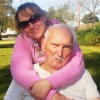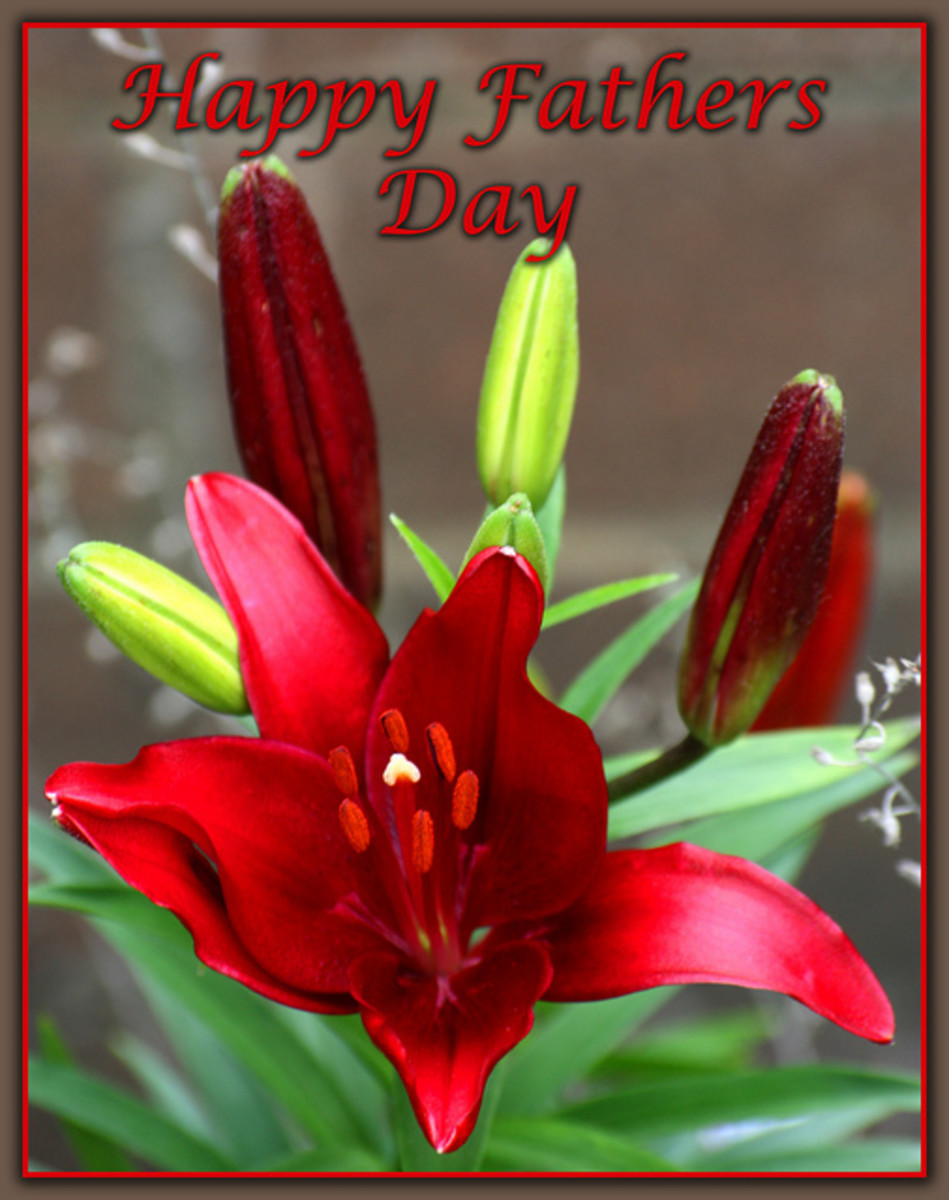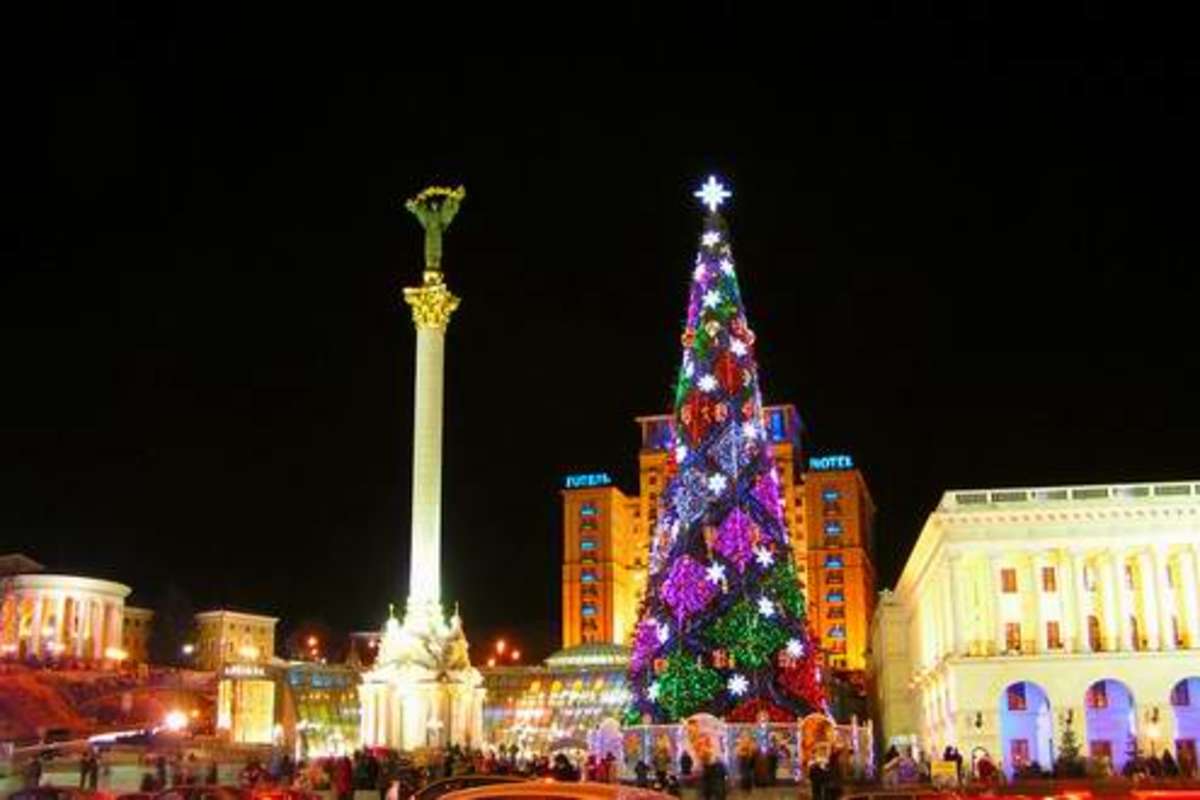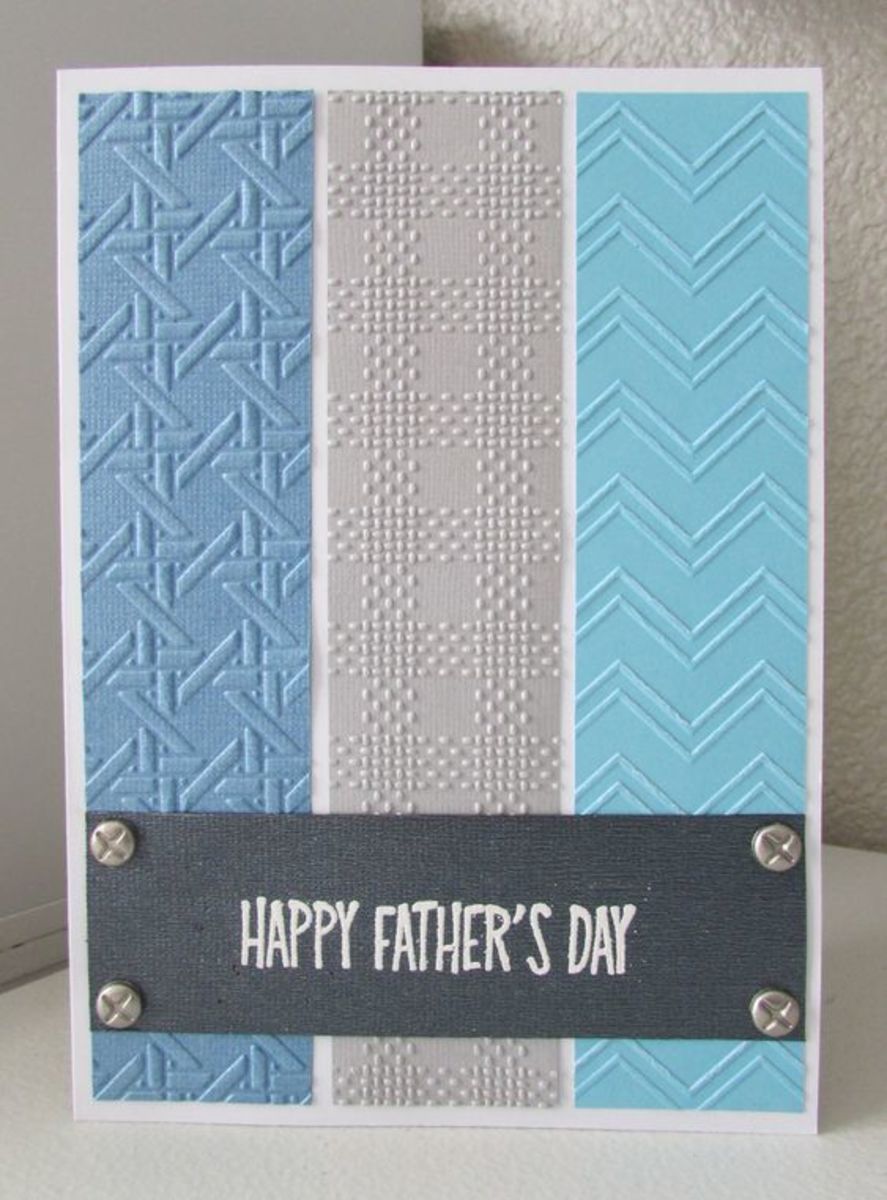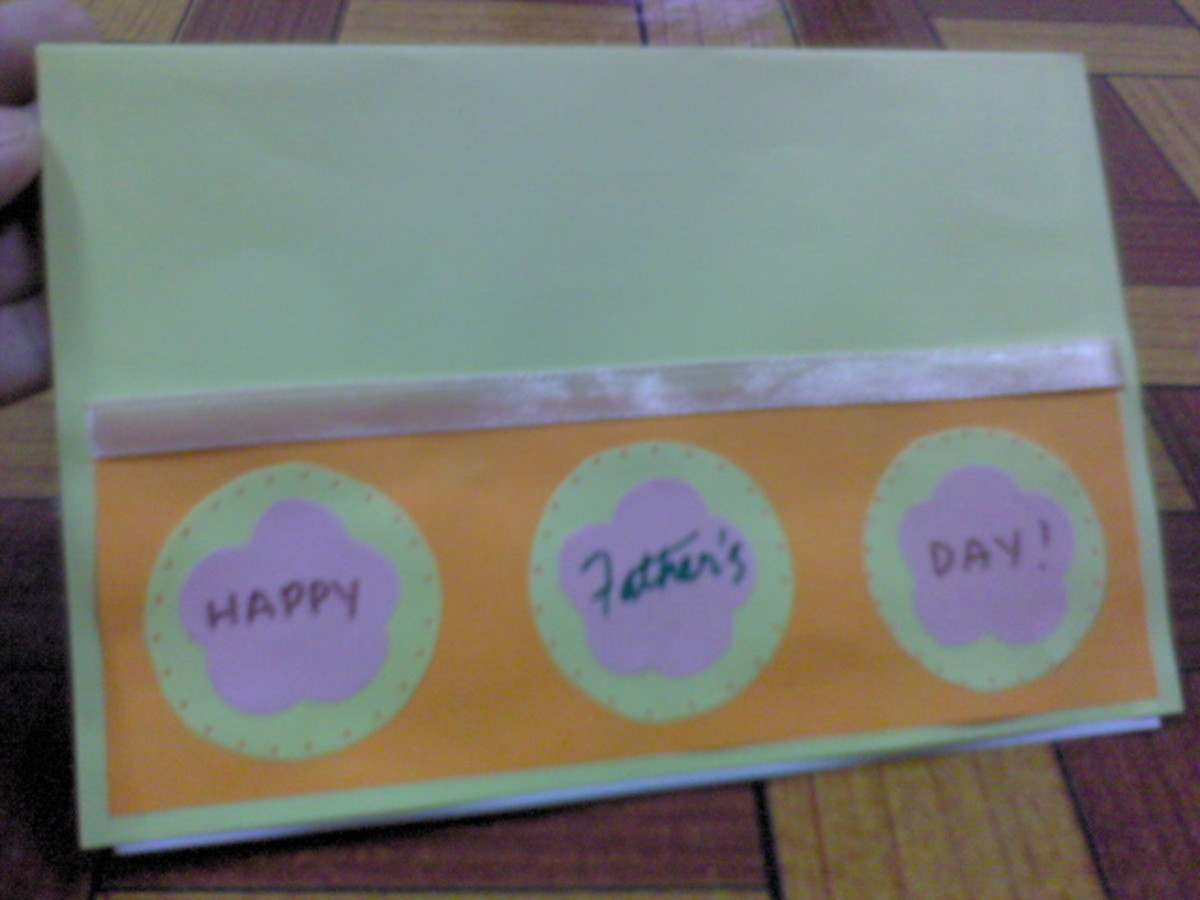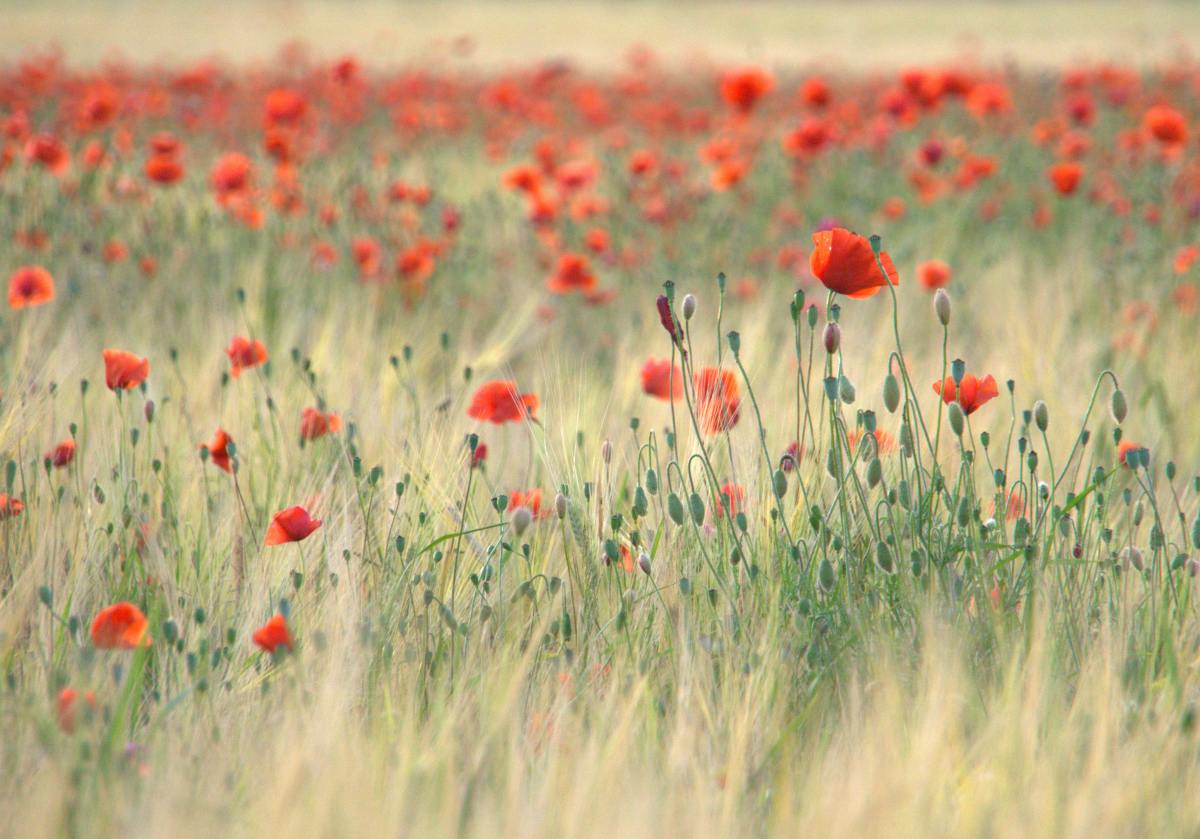A Tale of Two First Father's Days The History of Making The Celebration of Father's Day a National Holiday
Father's Day - A Holiday Taken For Granted
I've never really thought much about Father's Day before. I never really had to. For all of my remembered life it was just there, the third Sunday in June, like a birthday of someone you aren't allowed to forget, like Valentine's Day, or Christmas, or the Fourth of July. No one has ever specifically had to remind me that it was Father's Day, because even if I were to forget that Father's Day comes but once a year, there have always been those seasonal reminders; the ads that start arriving in the Sunday paper the first Sunday after Mother's Day; the commercials on television and radio, that begin bright and early the Monday after. Even before that, back in elementary school, when the average last day of school was around June the fifteenth, the making of a Father's Day gift, or at the very least, a hand-made card, was the final art project of the year.
I recently found out a few things about Father's Day though, that made me realize I had taken this holiday for granted. Did you know that when I was born (in 1967), and even in the early years when my tiny fingers struggled to cut and paste and write the letters that made up the very first of my end-of-school-Father's-Day-projects, that Father's Day was not even officially recognized as a holiday at all?
See Montage of 1907 Monongah Disaster
The Faces of the Very First, First Father's Day, July 05, 1908
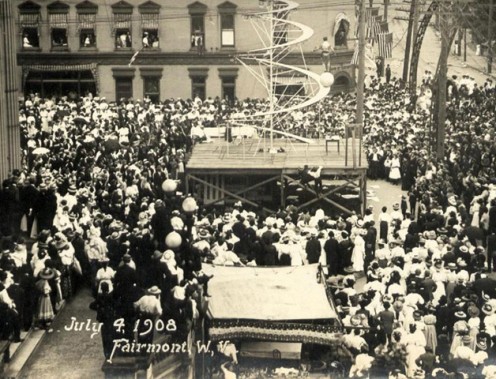
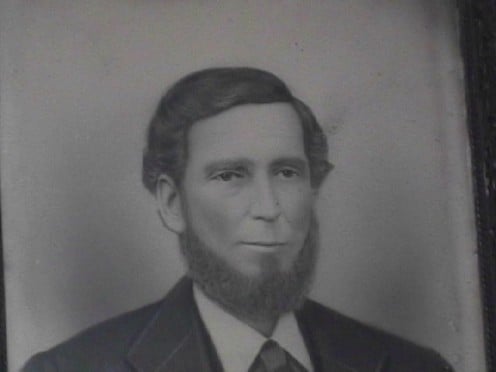
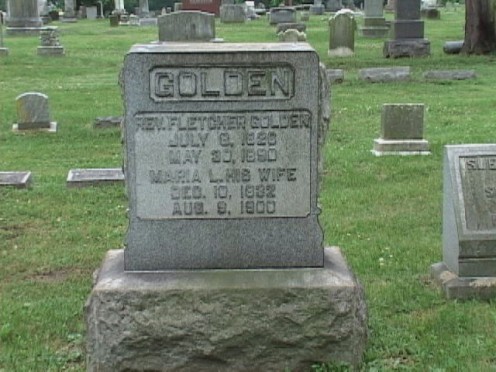
The Very First, First Father's Day
The story of the very first, first Father's Day, actually begins with a tragedy of national and epic proportions;
The Monongah Mine Disaster
December 06, 1907
On December 06, 1907, a scant nineteen days before Christmas, in the mining town of Monongah West Virginia, what is believed to have been an ignition of the natural gas methane, ignited the coal dust in mines number six, and number eight, of the Monongah coal mine, and began a chain of events that we still know today as the worst mining disaster in American coal mining history.
Before it was over, the toxic fumes had taken the lives of what was originally reported to be, *three hundred and sixty-two mine workers, (some of which were children), and left behind two hundred and fifty widows, and one thousand fatherless children.
*(In 1964 the Reverend Everett Francis Briggs stated that a more realistic estimate was of the victims who died that day, was closer to five hundred. In the 1990s, a study by the Assistant Secretary for Mine Safety and Health at the U.S. Dept. of Labor, Davitt McAteer, concurred with the reverend's estimate, although the exact death toll remains unknown.)
Fairmont West Virginia
Spring 1908
In the neighboring town of Fairmont, Mrs. Grace Golden Clayton, who eighteen years prior, in May of 1890, when she was a girl of barely fifteen, had found her life forever altered by the passing of her father, the Reverend Fletcher Golden, had been deeply affected by the events that had taken place that past winter five miles south of her home, in the West Virginia mining town of Monongah, particularly feeling a sad sort of kinship with the children who had been suddenly left fatherless by the mining accident, a connection illustrated in a statement made by Mrs. Clayton, and quoted in the September 23, 1979 edition of theFairmont Times,by renowned Marion County historian and author, ("Now and Long Ago"),Glenn D. Lough, which could be said just as easily to be in reference to her own experiences;
"...All those lonely children and those heart-broken wives and mothers, made orphans and widows in a matter of a few minutes. Oh, how sad and frightening to have no father, no husband, to turn to at such an awful time."
It was this connection that had Mrs. Clayton desiring to do something to honor not only her own father, but also the two hundred and ten fathers who had perished in the Monongah disaster.
No one knows for sure, but it is possible that Mrs. Clayton was influenced by the events taking place about fifteen miles away in the town of Grafton, where that May, Anna Jarvis had successfully managed the celebration of the first Mother's Day, but as the spring days slowly turned toward summer, Grace Clayton's plan to honor the Monongah fathers with a day all their own began to take shape.
Her own father having been a Methodist minister, Mrs. Clayton knew that she could not even hope to successfully accomplish her goal without the support of her own minister, Enlisted the help of Dr. Robert Thomas Webb, the congregation of the Williams Memorial Methodist. Church, and various citizens of Fairmont, to serve as the planning committee for the service and celebration, which was planned for Sunday July 5, 1908, a date chosen by Mrs. Clayton because it was the Sunday closest to her own father's birthday.
Unfortunately for Mrs. Golden, the other would be event planners, and the event its self, those who had worked so hard to launch the very first, first Father’s Day, had failed to take into account the fact that the service and subsequent activities were scheduled to take place on the day after America's Independence day, and even if they had, no one could have foreseen that the Fairmont City's Fourth of July celebration of 1908, would be the largest in Fairmont history, with a record number, twelve thousand people attending the all day party to sample the food, and play games, witness incredible daredevil type stunts, like watching a man roll atop a ball on a spiral staircase to the top of the adjacent bank building, or to maybe even take in the hot air balloon show, or the impact that all of that celebrating would have on attendance at church the next day.
As if the oversight in and of itself were not enough, when parishioners did arrive for services on at the Williams Memorial Methodist Church, on Sunday July 5, 1908, it was to find that the planned celebration overshadowed by the tragic news that Miss Lucy Billingslea, the beloved only daughter of Colonel Morgan and Mrs. Billingslea had succumbed to Typhoid Fever the previous evening while they had all been at the Fourth of July celebration. Between the shock of Miss Billingslea's passing and the preparations for the funeral, which included seventeen carriages lined up in front of the church and was the top story in theFairmont Timeson Tuesday July 6, 1908, when the paper carried the story, the sermon, and the obituary, Mrs. Golden Clayton's July fifth Father's Day celebration was all but forgotten; And because it was never celebrated again, and because West Virginia did not register the holiday, that is that way that it would remain for the next sixty-four years.,
The Faces of the 1910 First Father's Day
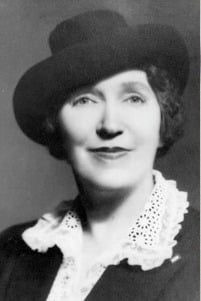
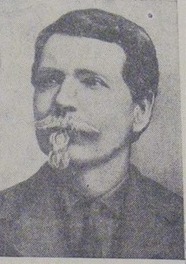
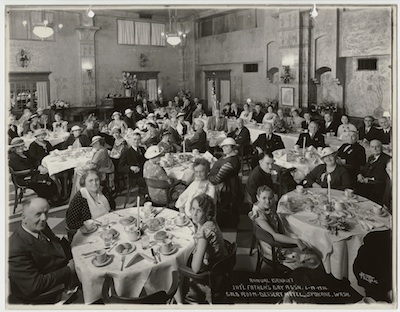
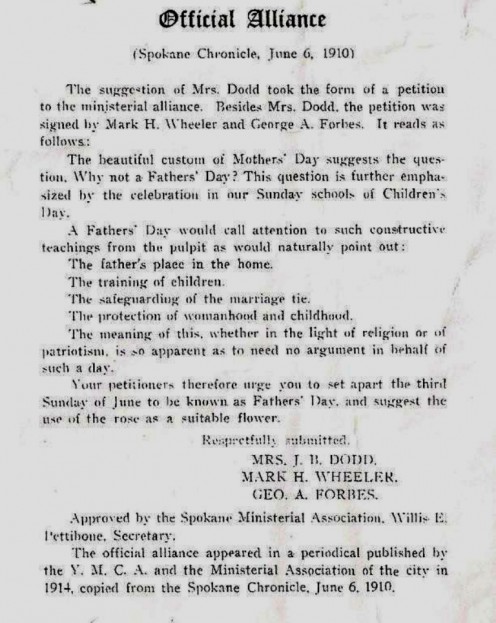
The Second First Father's Day
Spokane, Washington
Spring, 1909
Nearly one year later, and nearly two thousand miles northwest of Grace Golden-Clayton's ill-fated Fairmont, West Virginia, first Father's Day of 1908, on a Sunday morning in Spokane Washington, a twenty-seven year old Sonora Smart Dodd, sat listening to the weekly sermon at Central Methodist Episcopal Church. The subject of that sermon was the newly recognized Mother's Day observance, the first of which had taken place the year before. As she sat there listening. Sonora Dodd, who's own mother, Ellen Victoria (Cheek) Dodd, had died in 1898 during the birth of Sonora's fifth brother, leaving her father William Jackson Dodd, the single father of six children, wondered why there wasn't also such a day to honor fathers, especially father's like hers, who had given so much toward the raising of their families. The more that she thought about this, the more the idea made sense, and so Sonora Smart Dodd set her cap toward the creation of Father's Day.
Although they never met, and it is doubtful that Mrs. Dodd even knew about the failed attempt made by Grace Golden Clayton, when it came down to getting the job done, they both knew who to turn to, and just as Mrs. Clayton had turned to her church and her minister, so too did Sonora Dodd, when she enlisted the help of her pastor, the Reverend Dr. Conrad Bluhm of Old Centenary Presbyterian Church., (now known as Knox Presbyterian Church). With Dr. Bluhm's help, the endorsement of the Ministerial Alliance, and the support of the Spokane YMCA, a plan was formed and a date was set for the second first Father's Day celebration.
Sonora Dodd, like her predecessor, Mrs. Clayton, had wanted the event to be on the Sunday closest to her own father's birthday, and so she suggested that Father's Day be on the fifth of June, but the Ministerial Alliance of Spokane feared that their pastors would need more time in which to prepare their sermons, and so they agreed to hold the celebration two weeks later, on the third Sunday instead. On June 19, 1910, young members of the Spokane YMCA and YWCA arrived at church wearing roses; if their father was living, then the rose was red, those whose fathers were deceased wore roses of white. At churches all over the city, the sermon that Sunday was on the importance of fatherhood, and the role of father's in parenting their children. Sonora Dodd herself traveled through the city that day in a horse drawn carriage, in which she carried gifts of appreciation to fathers who were confined to their homes or hospitals by illness.
Locally, the celebration of that Father's day was a success, and it wasn't long before the story was picked up by the wire service, and the story appeared in newspapers across the country, and around the world.
They Helped to Make Father's Day a Reality
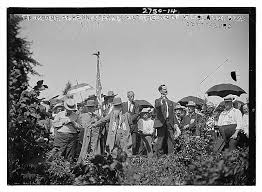
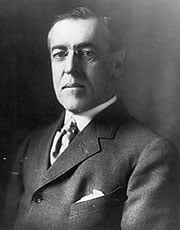
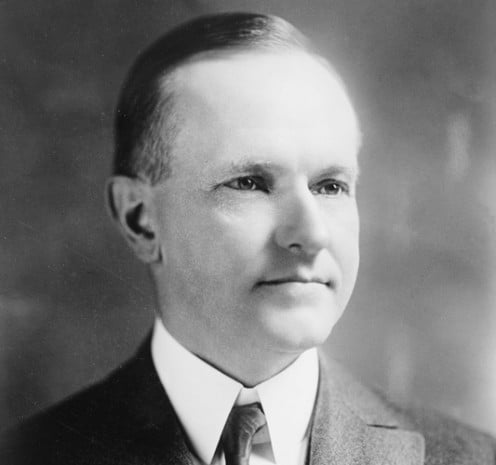
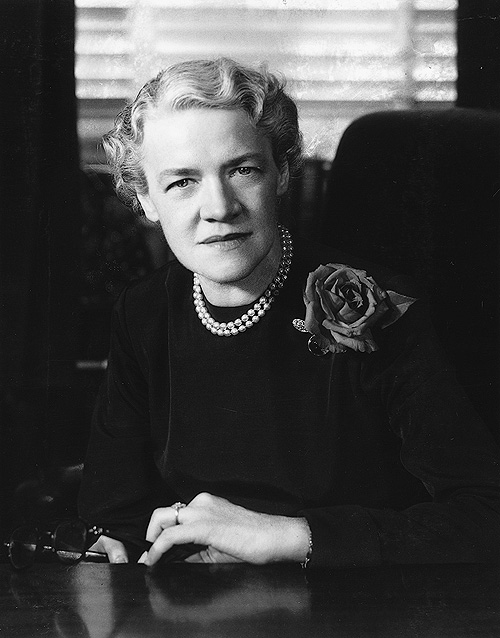
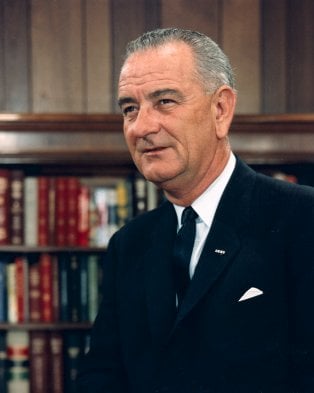
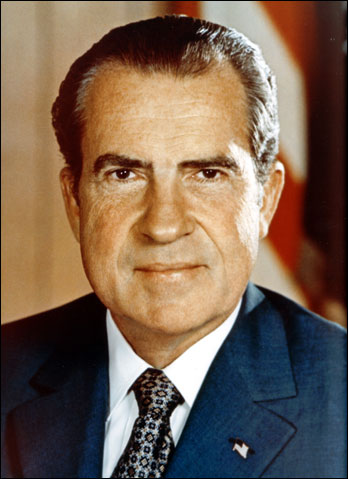
Father's Day and the Long Long Road to Becoming Official
As the reports of Spokane's newly christened holiday spread throughout the nation it was met with mixed reviews. While some people liked Mrs. Dodd's idea of honoring America's fathers as well as its mothers, in many more instances, the idea met the disapproval of those who saw it as the first step in filling the calendar with meaningless commercial holidays. The Father's day celebration also became a popular target for satire and derision, with even Spokane's own hometown newspaper, theSpokesman Review, making it the butt of its jokes. If Sonora Dodd was discouraged by this, she was also able to take heart in the many letters that she received, (sometimes amounting to one hundred letters a day), from supporters all across the country. If she was disheartened by the negative responses, she never let it show, as she continued in the pursuit of having Father’s Day officially recognized.
On October 2, 1913, a bill was introduced to the United States Congress, by representative J. Hampton Moore of Pennsylvania, asking that Father's Day be celebrated on the first Sunday of June every year, that the rose, irrespective of color be recognized as its emblem, and that it be accorded national recognition. No action was taken however, to make the legislative initiative law.
Three years later, in 1916, two years after signing the Mother's Day proclamation, President Woodrow Wilson, went to Spokane to speak at the sixth annual Spokane Father's Day festivities. Believing that Father's Day should be recognized, President Wilson would ultimately fail to convince a Congress whose majority feared that the holiday would become commercialized, to take action. The topic would not be brought up again until 1924.
In 1924, then President, Calvin Coolidge, recommended that the day be observed by the nation, saying, "to establish more intimate relations between fathers and their children and to impress upon fathers the full measure of their obligations."but then fearing public backlash, stopped short of issuing a national proclamation.
It was starting to look as if Father's Day would never be accorded national recognition, when in 1957, Senator Margaret Chase Smith, of Maine, wrote her own proposal, in which she accused Congress of ignoring fathers for over forty years, while honoring only the mothers, thus discriminating against one of the two parents. Even with Senator Smith's proposal it would be another nine years before Father's Day would receive any official recognition.
In 1966, President Lyndon B. Johnson issued the first presidential proclamation honoring father's and designated that this observance should take place on the third Sunday of each and every June.
Six years later, in 1972, President Richard M. Nixon would at long last make it official, when fifty-two years after the celebration of the first Father's Day, he signed the bill into law, recognizing Father's Day as a permanent national holiday.
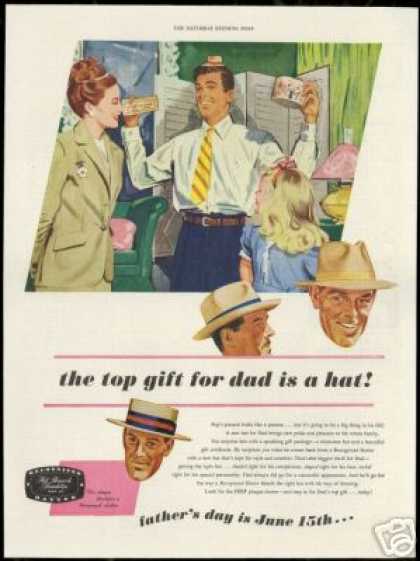
So Who Gets the Credit for Creating Father's Day?
So who in the world created Father's Day? If you were to Google the question,Who created Father's Day?You would find just as I did, that by popular majority, the official answer is overwhelmingly Sonora Smart Dodd.
While Grace Golden Clayton, was shy and retiring and not known for speaking-out publicly, she also did nothing to promote the Fairmont Father's Day, following the first disastrous event of 1908. On the other hand, Sonora Smart Dodd, was a prominently known artist, poet, philanthropist, community benefactor and activist, of just twenty-seven years old when she began her a quest for a day to honor all fathers, and it became a passion that she lovingly tended and nurtured for over fifty years, until in 1972, it came into full bloom, when President Nixon, at long last, signed the holiday into law.
While the idea of honoring one's mother was an easily and readily accepted idea, because of the sentiment of the times, the idea of honoring one's father was seen either as a way to fill up the calendar with meaningless national holidays, or as a joke, which was endlessly the victim of parody and satire. It was this public attitude, that out of the fear of public backlash, kept men like Presidents Calvin Coolidge, and his predecessor, Woodrow Wilson, who traveled to Spokane and spoke at the Father’s Day celebration of 1916, from making any official proclamation that would accord the day national recognition, even though they both believed strongly in its concept.
Unlike Anna Jarvis, who created Mother's Day, and who actively opposed the commercialization of Mother's Day, Sonora Dodd, knew that the only way to get Father's Day officially recognized, was to popularize the idea with the public, and so she worked side by side, withThe Associated Men's Wear Retailers,who in 1938, incorporated representatives of several other trade groups, and created the National Council for the Promotion of Father's Day.
The goal of the council, who after a study in 1937 concluded that nationally only one out of every six fathers received a present on Father's Day, was to,"Legitimize the holiday in the minds of the people and to manage the holiday as a commercial event in a more systematic way, in order to boost sales during the holiday."A goal that they declared accomplished in the 1980s when figures showed that the one day a year event had become a three week commercial event, the retail equivalent of a second Christmas. An accomplishment that was helped along by the endorsement of promotional ads, and gift ideas by Mrs. Dodd; And what of those naysayers who claim that the holiday is nothing but an"artificial holiday dreamed up by commercial retailers to increase sales and make money.”? In some ways it is true, but in a statement regarding just such allegations, released by the executive director in 1949, the council replied, "Without the council's help, (and the help of Sonora Dodd), the holiday would have just disappeared."
Two years after President Nixon signed the law that made Father's Day a nationally recognized legal holiday, Sonora Smart Dodd was honored at the 1974 Spokane World's Fair, for her contributions to making Father’s Day a reality
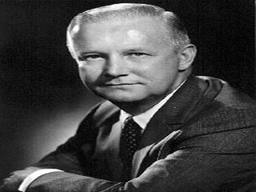
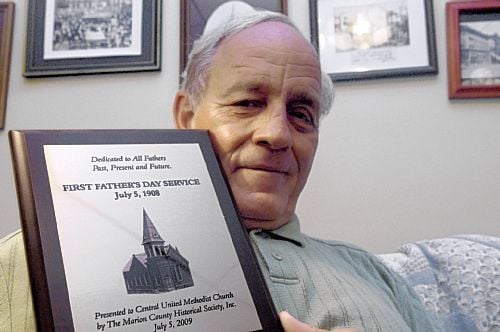
What Happened to Grace Golden Clayton and the First Father's Day of 1908?
But what about Grace Golden Clayton, and the first Father's Day of 1908?
With Sonora Dodd and the advertising department of the National Council for the Promotion of Father's Day setting the standard and leading the way toward the recognition of Father's Day as a national holiday, Fairmont's ill-fated first Father's Day was all but forgotten; at least until 1962 when Ward Downs, a resident of Fairmont, and a member of the congregation at Williams Memorial M.E. Church in 1908, read an article in the newspaper about a movement in Congress to have Father's Day officially declared a national holiday.
Upon reading of the movement, Ward Downs, who had attended the July 5, 1908 service in Fairmont, West Virginia, wrote this letter, dated August 10, 1962, to then West Virginia representative, Arch Moore;
"It has recently come to my attention of a movement establishing a Father's Day by an act of Congress to be observed the same as Mother's Day. It was my privilege to have attended this first Father's Day Service, July 5, 1908 at the Williams Memorial M.E. Church, South, now the Central United Methodist Church, Fairmont, West Virginia. The sermon was preached by R.T. Webb at the request of Mrs. Charles Clayton, a member of that congregation, and a daughter of a Methodist minister.
I recall the occasion very distinctly as the pulpit was decorated by having ripened sheaves of wheat placed about it. Many favorable comments by individuals and the press were made concerning the service at that time.
Any assistance you can give this movement will be very appreciated by me and all the Methodists in this part of the country."
No action was taken regarding this letter, and in 1972, then president, Richard M. Nixon, signed the proclamation that officially made the third Sunday of June the nationally recognized Father's Day; and set Mr. Downs on his own quest, which he pursued for the rest of his life, to have Fairmont, West Virginia, Williams Memorial M.E. Church South, and Mrs. Grace Golden Clayton, recognized for the creation and hosting of the very first celebrated Father's Day in the United States.
In 1984, Mr. Downs did succeed in getting Hallmark Cards Corporation to write a letter acknowledging Fairmont as the location of the first Father's Day observance; and to his credit, there are now signs at every city entrance from the highway that read "Welcome to Fairmont - The Friendly City - Home of the First Father's Day Service, July 5, 1908" and although the original Williams Memorial M.E. Church, South, was raised in 1922, and was replaced by the new Central Untied Methodist Church, a plaque was placed on an outside church wall in 1984, in commemoration of the event, and in 1985, the West Virginia Department of Archives and History erected a historical marker in front of the church.
If you were to visit the Central United Methodist Church in Fairmont, West Virginia, you would find that there is a room on the second floor of the church, a museum of sorts, called the Father's Day Room, which was created by now former pastor of the church, the Reverend D.D. Meighen, which is filled with newspaper articles, pictures, and memorabilia commemorating the event, the Monongah Mining Disaster, which inspired it's creation, and the lives of Mrs. Grace Golden Clayton and Reverend Robert Thomas Webb, spearheaded the drive for the service.
The Reverend D.D. Meighen, who has since retired, received the 2010 West Virginia History Heroes Award, for his work not only on creating the second floor museum, but also for his efforts to promote the story of the first Father's Day, so that the community's history will not be forgotten. Under his direction, the Central United Methodist Church has seen the story continue on in the creation of an original Father's Day play which dramatized and brought to life for another generation, the events of 1908, and partially for it's involvement with Father's Day, the Fairmont congregation was awarded the 2004 Methodist Church of the Year award.
© 2011 Kristen Burns-Darling
